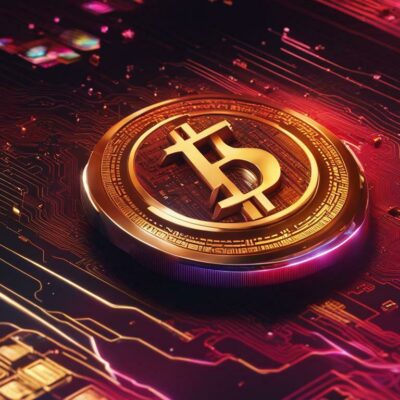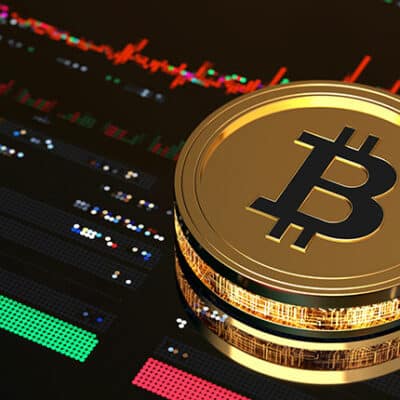Uniswap is a decentralized exchange protocol built on the Ethereum blockchain. It enables users to trade cryptocurrencies directly from their wallets without the need for intermediaries such as centralized exchanges. Uniswap has gained significant popularity in the world of decentralized finance (DeFi) due to its unique approach to liquidity provision and automated market making.
How Uniswap Works
Uniswap operates on the principle of automated market making (AMM). Instead of relying on order books like traditional exchanges, Uniswap uses liquidity pools to facilitate trades. These pools consist of pairs of tokens, and users can contribute their assets to these pools to earn trading fees.
Liquidity Pools
Liquidity pools are the backbone of Uniswap. They are composed of two tokens, for example, ETH and DAI, and users can contribute an equal value of both tokens to the pool. By doing so, they become liquidity providers and receive pool tokens in return. These pool tokens represent the LP’s share of the liquidity pool and can be redeemed at any time.
Automated Market Making (AMM)
Uniswap relies on a mathematical formula to determine the price of tokens in a liquidity pool. The formula, known as the constant product market maker model, ensures that the product of the two token reserves remains constant. When a user wants to trade one token for another, the algorithm adjusts the price based on the ratio of the token supplies in the pool.
Decentralized Governance
Uniswap is governed by its community through a decentralized governance mechanism. Holders of the Uniswap token (UNI) can participate in proposing and voting on changes to the protocol. This enables the community to have a say in the evolution and development of Uniswap.
Uniswap Token (UNI)
UNI is the native governance token of the Uniswap protocol. Holders of UNI have voting rights and can also earn a share of the trading fees generated on the platform. UNI has become a valuable asset in the DeFi space, and its value is influenced by the growth and adoption of Uniswap.
Benefits of Uniswap
- Decentralization: Uniswap eliminates the need for intermediaries, giving users full control over their funds and trades.
- Liquidity Provision: Anyone can contribute liquidity to Uniswap and earn a share of the trading fees, providing an opportunity to earn passive income.
- Accessibility: Uniswap is open to anyone with an Ethereum wallet, making it accessible to users around the world.
- No KYC: Uniswap does not require users to complete a Know Your Customer (KYC) process, ensuring privacy and anonymity.
- Innovation: Uniswap has sparked innovation in the DeFi space and has inspired the development of other decentralized exchanges.
Risks and Considerations
- Impermanent Loss: Liquidity providers are exposed to impermanent loss, which occurs when the price of the deposited tokens in a liquidity pool changes significantly.
- Smart Contract Risks: As Uniswap operates on smart contracts, there is always a risk of vulnerabilities or exploits in the code.
- High Gas Fees: Due to the congestion on the Ethereum network, gas fees for transactions on Uniswap can be high during periods of high demand.
Comparison with Traditional Exchanges
Uniswap differs from traditional exchanges in several ways:
- Centralization: Traditional exchanges are centralized entities that control the trading process and custody of user funds. Uniswap, on the other hand, is decentralized and gives users full control over their assets.
- Listing Process: Traditional exchanges have a rigorous listing process, while Uniswap allows anyone to create a trading pair for any token.
- Liquidity: Traditional exchanges rely on market makers and order books for liquidity, whereas Uniswap leverages liquidity pools to provide liquidity.
Future of Uniswap
Uniswap has already made a significant impact in the DeFi space, and its future looks promising. The protocol continues to evolve with new features and improvements. With the increasing adoption of decentralized finance, Uniswap is well-positioned to play a vital role in the future of financial markets.
Conclusion
Uniswap has revolutionized decentralized exchanges by introducing a new approach to liquidity provision and market making. Its decentralized nature, innovative design, and community governance make it a powerful tool in the world of decentralized finance. However, users should also be aware of the risks and considerations associated with using Uniswap.
FAQs
1. Is Uniswap safe to use?
- Uniswap is generally considered safe, but users should exercise caution and be aware of potential risks such as impermanent loss and smart contract vulnerabilities.
2. How can I become a liquidity provider on Uniswap?
- To become a liquidity provider on Uniswap, you need to contribute an equal value of two tokens to a liquidity pool. In return, you will receive pool tokens representing your share of the pool.
3. Can I trade any token on Uniswap?
- Uniswap allows anyone to create a trading pair for any ERC-20 token. However, it’s essential to research and be cautious when trading lesser-known tokens.
4. How are the trading fees calculated on Uniswap?
- The trading fees on Uniswap are set at 0.3% per trade. These fees are distributed among the liquidity providers in proportion to their contribution to the pool.
5. What is the role of UNI tokens in Uniswap?
- UNI tokens are the governance tokens of Uniswap. Holders of UNI have voting rights and can participate in shaping the future of the protocol.











